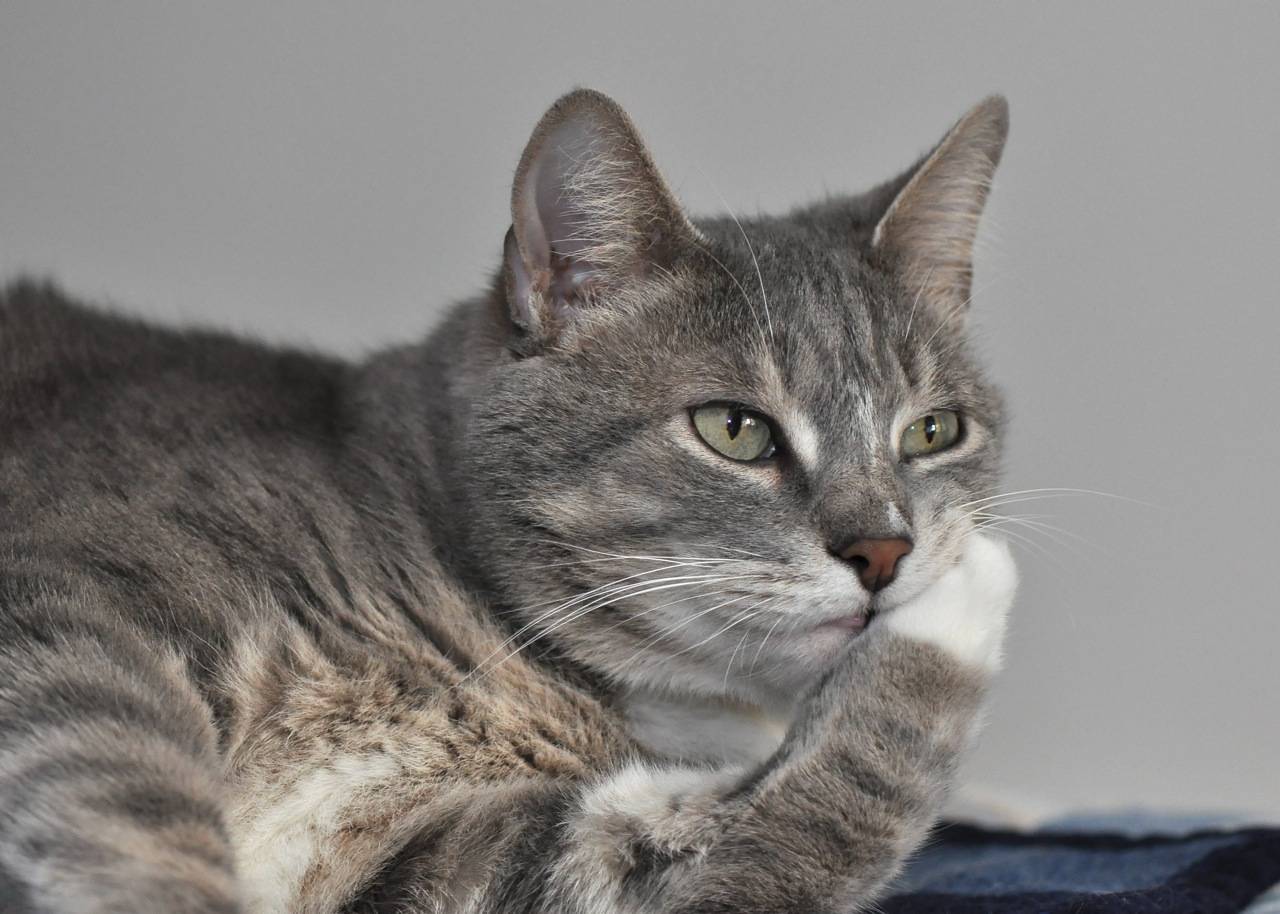
Have you ever wondered if your feline friend remembers you when you come back from a trip? While cats have a short-term memory that lasts around 16 hours, they also have a remarkable long-term memory capacity compared to other animals. This memory can last indefinitely and affects their behavior for a lifetime.
Scientists have discovered that cats use their short-term memory to remember things of importance, such as where they hunted the night before or where their new food bowl is located in the house. Additionally, cats store long-term memories mainly through smells. Understanding how cats remember can help us better care for our feline companions and strengthen our bond with them.
Cat’s Short-Term Memory
Written from a Cat’s Viewpoint 😸: This article is written from the unique perspective of a cat, offering insights into their world and experiences. While the content is created with a touch of feline imagination, it’s based on factual information and research about cat behavior and cognition.
As a cat, I have a short-term memory that allows me to remember recent events and experiences. Scientists believe that my short-term memory lasts around 16 hours. If I have just one interaction with a human, I will likely remember them for up to 16 hours. Similarly, if a human accidentally steps on my tail, that one-off bad event will fade away from my memory within 16 hours.
Interestingly enough, a study published in Applied Animal Science Behavior tested my reaction to being restrained against my will at a Veterinary Surgery Clinic. It was found that I didn’t avoid that location or people afterward. Due to how short-term memory works in felines, I might not remember what caused me stress in a few hours. However, I use my short-term memory to remember things of importance, like where I hunted the night before or where my new food bowl is located in the house.
Keep in mind that I have a remarkable short-term memory capacity compared to other animals. While most animals can only hold a short-term memory for an average of 25 seconds, I can retain information for up to 16 hours, which is quite significant. But I also have long-term memory, and this memory can last indefinitely. When certain things happen repeatedly, I will store that information in my long-term memory.
Cat’s Long-Term Memory
Negative Long-Term Memories
As cats have a remarkable long-term memory capacity, they can remember things that happened repeatedly, especially negative experiences. For instance, if a cat has been abused or mistreated repeatedly by humans, they will have a hard time trusting humans again. Long-term memories are also what make cats afraid of certain people and hold grudges like there’s no tomorrow. If a person repeatedly abuses or mistreats a cat, the cat will associate that person with negative experiences and try to avoid that person at all costs.
Positive Long-Term Memories
On the other hand, pleasurable long-term memories are also stored in a cat’s long-term memory. These memories last indefinitely, and if a cat has had good memories with you in the past, your scent will remind them of all the positive experiences. Your cat may not remember the specific interaction she’s had with you, but she will remember how you love them and brought them joy. Your smell will remind them of your affection, the arrival of food, or resources as they always appeared when you were there. So, if you have a strong bond with your feline friend, they will remember you for a lifetime.
Cat’s Routine and Episodic Memory
Cat’s Routine
As a cat, I have a remarkable ability to memorize predictable routines. For instance, if my human usually feeds me at 7 o’clock AM every morning, I expect to be fed at that time. If my human is late by half an hour one day, I get nervous and worry about where my next meal will come from. I also worry about how I will get water and companionship. Any change in my routine can be very stressful for me.
When my beloved owner leaves me alone for extended periods, it can be distressing. I often find myself feeling stressed and anxious, wondering where they’ve gone. That’s why I decided to take matters into my own paws and get creative.

One day, while my owner was away, I sneaked over to their phone, and with a pawful of curiosity, I tapped my way onto Amazon.
Lo and behold, I discovered the perfect solution for my lonely moments – Automatikat Cat Feedurrz! These feeders have been a lifesaver! They help me maintain a sense of routine and reduce my worries. With Automatic Cat Feeders, my meals are served at regular times, and the litter box is kept tidy.

These feeders ensure that some degree of normalcy is maintained even when my owner is away. Now, whenever my owner leaves, I give them a subtle nudge towards the phone, hinting at the peace of mind Automatic Cat Feeders bring to both of us.
Episodic Memory
My episodic memory is also important. I remember things of importance, such as where I hunted the night before or where my new food bowl is located in the house. I have the ability to memorize predictable routines, but I also have the ability to memorize specific events. If my human always brings out the cat carrier when it’s time to go to the vet, I will learn to associate the carrier with unpleasant vet visits. Even after many years, I will remember the carrier and try to avoid it because it associates it with bad experiences.
Memory of Other Cats
Cats store long-term memories mainly through smells, they can also remember other cats or animals they have formed long-term memories with.
In fact, a study was conducted where kittens were separated from their moms and after a year, they were reunited. After the reunion, the kittens showed clear gravitation toward their mom, indicating that they remembered her. Interestingly, the scientists also discovered that these kittens could also recognize each other if they were separated for a year and then brought back together.
Effects of Owner’s Absence
Stress and Anxiety
I am a creature of habit and thrive on routine. When my owner is absent for extended periods of time, it can cause me stress and anxiety. I may become more vocal, hide in small places, or even urinate outside of my litter box. These behaviors are not due to anger or seeking revenge, but rather my way of coping with the anxiety of being alone.
Maintaining Routine
I rely on routine to feel safe and secure. When my owner is absent, it is important to maintain my routine as much as possible. This can include feeding me at the usual times, playing with me, and providing me with attention and affection.
My owner can also leave familiar scents around the house, such as their clothing or bedding, to help me feel more comfortable and secure. It is also important for my owner to provide me with plenty of toys and entertainment to keep me occupied while they are away.
I am sensitive to changes in my routine and can experience stress and anxiety when my owner is absent. By maintaining a normal routine and providing me with plenty of attention and affection, my owner can help ease my stress and anxiety and ensure that I am happy and healthy.
Cat’s Recognition of Owners
I can tell you that we definitely recognize our owners. We may not show it in the same way that dogs do, but we know who our humans are. We identify our guardians through their scent and sound, and we can tell them apart from outsiders and other people within our own home.
When our owners come home, some of us may twitch our ears or tilt our heads to acknowledge their presence, while others may simply continue napping or lounging. But just because we don’t always offer a response doesn’t mean we don’t recognize our owners. In fact, we have a favorite person and prefer the company of one individual over others.
We also memorize predictable routines, so if our owners usually feed us at a certain time, we will expect to be fed at that time. And if our owners are late or there is a change in routine, it can be stressful for us. When our owners leave us alone for extended periods of time, it can also be a negative experience for us. We may display signs of stress, such as avoiding the litter box, urinating outside of it, destroying furniture, becoming more vocal, or hiding in small places.
Cat’s Attachment and Grief
As cats’ short-term and long-term memory is complex, they can form strong attachments to their owners and other animals. Just like humans, cats can experience grief when they lose a family member, whether it’s a human or another animal companion. Research has shown that cats feel safer and more secure when their owners are around and may even experience stress and separation anxiety when their owners are gone.
It’s important for pet owners to understand the emotional needs of their cats and provide them with proper care and attention. When a cat loses a family member, it’s important to give them extra love and attention to help them cope with their grief. By understanding the complex memory and emotional capabilities of cats, we can provide them with the love and care they need to thrive.
